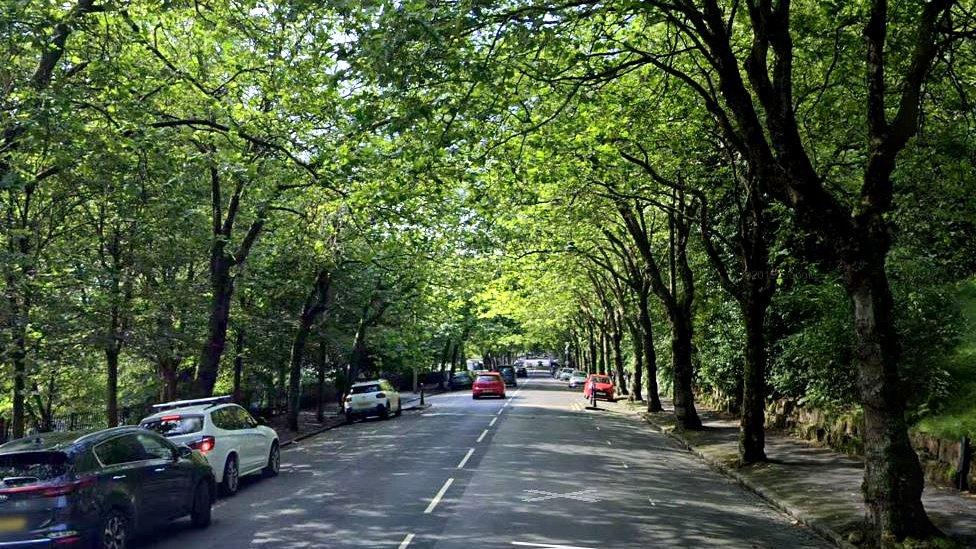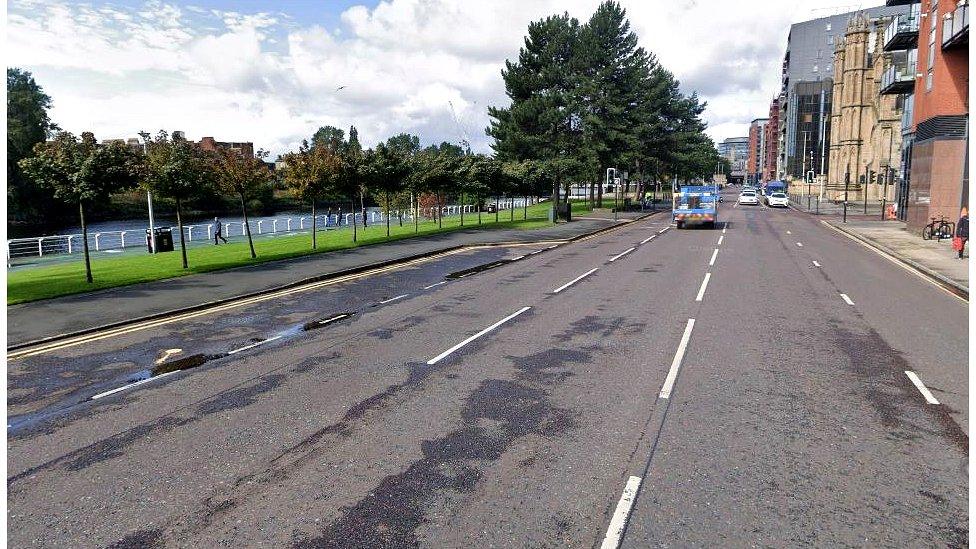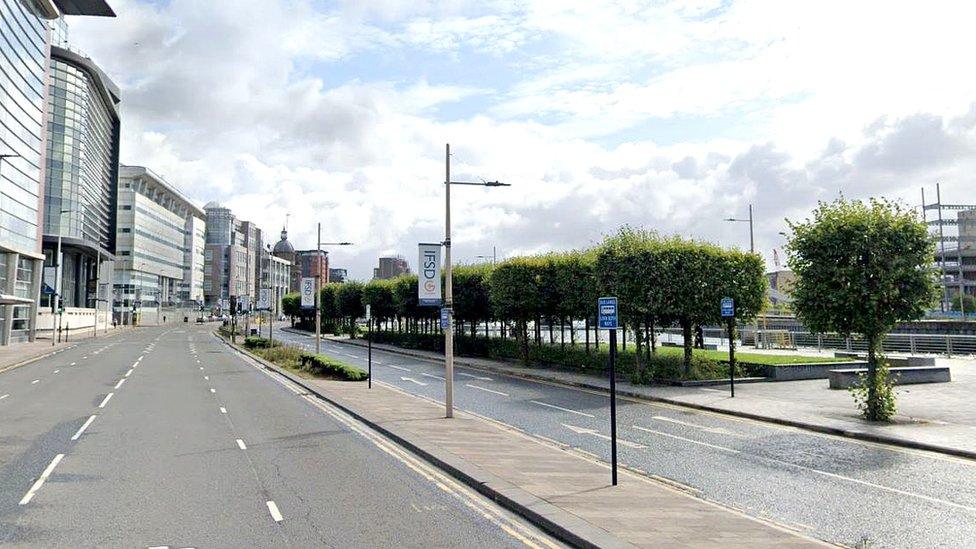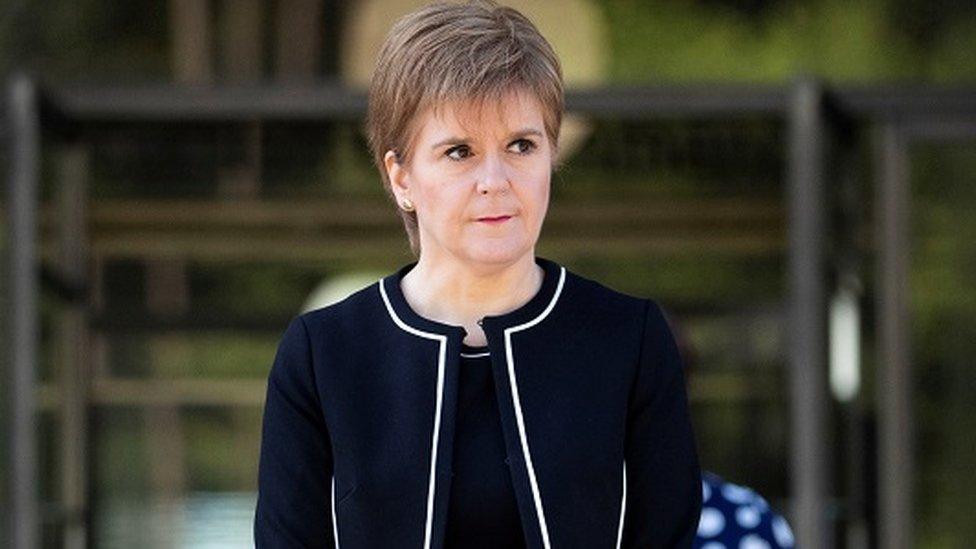Glasgow makes street changes to help physical distancing
- Published

Kelvin Way in the city's west end has been closed to allow easier access to paths around Kelvingrove Park
Scotland's largest city is changing some of its road layouts to allow more physical distancing to take place.
To prepare long-term for social distancing, transport bosses in Glasgow have introduced measures to create space for people in popular places.
The plan started on Saturday with the closure of Kelvin Way in the west end.
Paths along the banks of the river Clyde will be widened to create more space between walkers, cyclists and wheelchair users.
'Stick to the lockdown'
Glasgow has been at the forefront of the push for temporary footpaths and cycle ways as a means to thwart the spread of coronavirus.
Last week, the Scottish government announced a £10m package of support for such measures.
On Thursday Nicola Sturgeon urged people to stick with the lockdown.
Ms Sturgeon said there was evidence that people were beginning to venture out more, warning that "if everyone starts easing off, the virus will quickly take off again".

Clyde Street will see paths and cycle ways extended
She said car travel - while still far lower than pre-lockdown levels - had increased by 5%, and by 10% in some towns and cities. Uses of concessionary bus travel was up by almost a sixth last week.
And she said people should stick to social distancing while taking their daily exercise and on essential trips outside.
The closure of Kelvin Way to vehicle traffic will allow greater space for people undertaking daily exercise in and around Kelvingrove Park.
'Key to economic recovery'
Plans to widen Clyde Street and Broomielaw to ensure pedestrians, cyclists and wheel chair users can be physically distant safely at all times are also at an advanced stage.
Both Kelvin Way and the Clyde Walkway have both been heavily used by people using the current exercise exemption to staying at home and concerns have been expressed about the ability to follow the 2-metre rule in these places.
Glasgow City Council sees additional public space for physical distancing as a key component in the economic recovery of the city.
Wider pavements and paths will help to enable safe access to shops and business premises in the city centre.
Other areas with high pedestrian footfall such as Byres Road and Partick, Dennistoun, Shawlands and Maryhill have also been identified as places where the temporary measures can be introduced.

The Broomielaw is also earmarked for extra social distancing space
Pollok, Drumchapel, Easterhouse and Castlemilk have also been identified for support.
Leader of the council, Susan Aitken, said: "When lockdown begins to ease, it is vital that we do everything we can as a city to keep the coronavirus at bay.
"We want to ensure that people are confident that they can move safely around the city, and access workplaces, shops, pubs, restaurants and other business when they begin to reopen. This is crucial not only for the health of our citizens, but also the health of our economy.
"Rethinking road space to allow for wider footways will be essential for people accessing businesses, public transport and other facilities, and these types of measures will be an important tool in getting the city up and running again."
It is also hoped a boom in cycling due to a fall in car use in the city during lockdown will support environmental gains.
- Published30 April 2020
